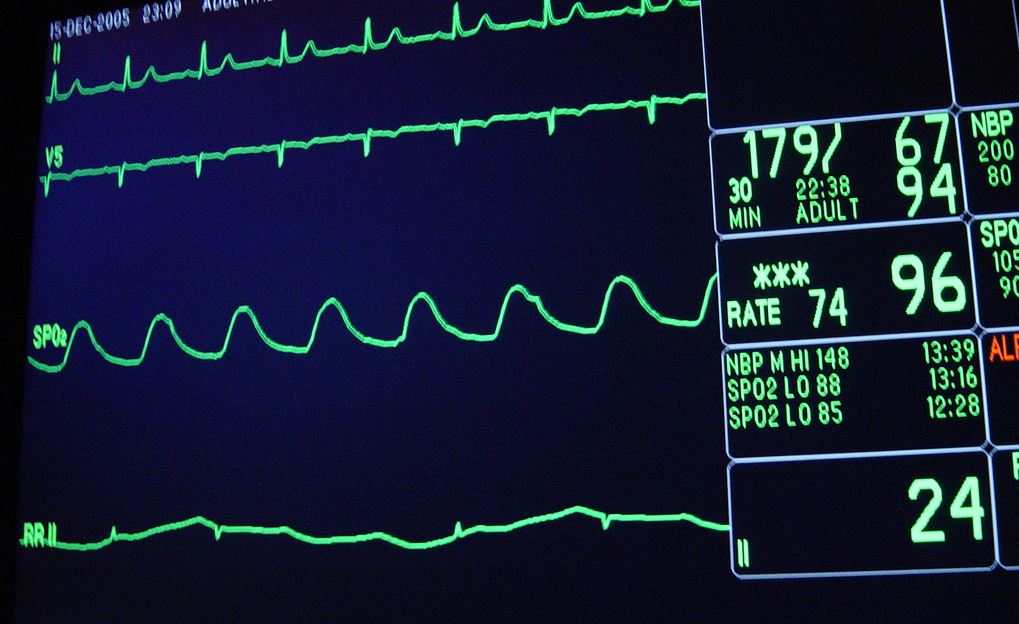In a new study, researchers found discharge against medical advice as the strongest predictor of 30-day unplanned readmissions in heart attack patients. While only a small number of patients choose to discharge against medical advice following percutaneous coronary intervention (PCI), these patients are twice as likely to be readmitted to the hospital, according to the study published in JACC: Cardiovascular Interventions.
“While the group of patients who discharge themselves from the hospital is small, our study demonstrated these patients have a high rate of readmission and should be considered at high risk,” says Mamas A. Mamas, BMBCh, DPhil, Professor of Cardiology at Keele University in Stoke-on Trent, United Kingdom. “The biggest takeaway from our findings is the need for a greater understanding of patients who discharge against medical advice and to further develop interventions to reduce it or develop a way that allows for follow up with these patients.”
Discharge against medical advice describes patients who elect to leave the hospital before the treating physician’s recommendation for discharge. Overall, about 1-2 percent of patients discharge against medical advice.
Using the Nationwide Readmission Database, a publicly available database of all-payer hospital inpatient stays in the U.S., researchers analyzed patients over 18 years old who underwent first PCI between 2010 and 2014 who were either discharged against medical advice or discharged home. The researchers defined first PCI as the first PCI procedure a patient underwent within a calendar year. Patients who died during their initial admission for PCI, who had an elective readmission or who were not discharged home or against medical advice were excluded. In total, 2,021,104 were included in the patient cohort analyzed for 30-day readmissions and reasons for readmissions.
Overall, 0.5 percent of patients discharged against medical advice during the study period and 16.8 percent of those patients were readmitted within 30 days. Patients who did not discharge against medical advice had an 8.5 percent readmittance rate.

(Image credit: via Flickr)
The researchers found the patients who discharged against medical advice were younger, male, more likely to be smokers, misuse alcohol and drugs and be in the lowest quartile of income. They were also more likely to be admitted on a weekend and be insured under Medicaid and more likely to be comorbid. Many comorbidities such as dementia, acute kidney injury were found to be strong predictors of patients who would discharge against medical advice. Patients who discharged against medical advice had a 1.5-fold higher rate of death and 3-fold greater incidence of in-hospital major adverse cardiac events and a 12-fold greater discharge against medical advice again, in the readmission episode.
Discharging against medical advice was the strongest predictor of 30-day unplanned readmissions for the patients studied.
The most common non-cardiac reason for readmission for both patients discharged home and patients discharged against medical advice was non-specific chest pain. Patients who discharged against medical advice were four times as likely to be readmitted for psychiatric reasons, including depression, bipolar and mood disorders, paranoid schizophrenia, schizoaffective disorder and psychosis. Heart attack was the most common cardiac-related cause for readmission among both groups; however, patients who discharged against medical advice were twice as likely to be readmitted for this reason.
“Patients who undergo PCI not only have risks associated with their presenting condition, but there are also risks related to their treatment. When patients discharge against medical advice, there is a breakdown in the care relationship and the patient has chosen to discontinue care,” Mamas says. “This has serious consequences as ongoing care is vital after PCI, from prescribing dual antiplatelet therapy to echocardiograms to assess other, necessary, evidence based therapies or management of newly diagnosed diabetes and more.”
According to the researchers, the findings suggest understanding reasons patients discharge against medical advice following PCI to develop evidence-based interventions to reduce the occurrence or lessen the risk when it does occur.
In an accompanying editorial David P. Faxon, MD, and Natalia C. Berry, MD, of Brigham and Women’s Hospital, examined the suggestions the authors made to reduce discharge against medical advice, including “improved communication with health care providers, better access to prescription medications following PCI, and inpatient mental health support in the subset of patients who have mental health disorders.”
According to Faxon and Berry, there is a need for more concrete solutions such as follow up through early office visits, home visits or telemedicine for this group of patients. There is also a need for shorter follow up time, involving social services and ensuring these patients have dual antiplatelet therapy provided where there is a medication availability or affordability issue.
As a retrospective analysis of administrative data, the study has several limitations, including the inability to link the five datasets used to provide the overall data; pharmacotherapy data is not included, thus prescription fill-rates and compliance are unknown in the patients who discharged against medical advice; and researchers were unable to determine out of hospital deaths, so results may underestimate the extent of poor outcomes for these patients.




